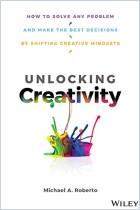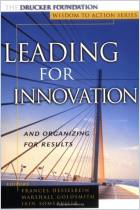Únase a getAbstract para acceder al resumen.

Únase a getAbstract para acceder al resumen.
Cynthia Barton Rabe
The Innovation Killer
How What We Know Limits What We Can Imagine – and What Smart Companies Are Doing About It
AMACOM, 2006
¿De qué se trata?
What if the problem isn't what you don't know, but what you do know? That's the clash between expertise and innovation.
Recommendation
This is a lively book. As befits its central image, the "Zero-Gravity Thinker," it moves lightly, traveling without friction through the challenging thicket of innovation. Cynthia Barton Rabe defines innovation simply and focuses on its human side. While her book does not provide specific guidance about what processes to use, or tell you how to innovate in your industry, it is an immediately applicable, solid introduction you can use to promote innovation. Rabe's creative successes (she was part of the team that introduced the Energizer Bunny) illustrate her points well. Her stories about skilled leaders who failed to innovate though they had the right training and personnel go a long way toward proving her central claim: Organizational attitudes blocking innovation are the main reason people don't innovate more often. getAbstract recommends this book to all those who are eager to innovate, and ready and willing to shake up their organizational structures to do so.
Summary
About the Author
Cynthia Barton Rabe was an "innovation strategist" for a major technology corporation before she founded a consulting firm focusing on strategy and innovation.


















Comment on this summary